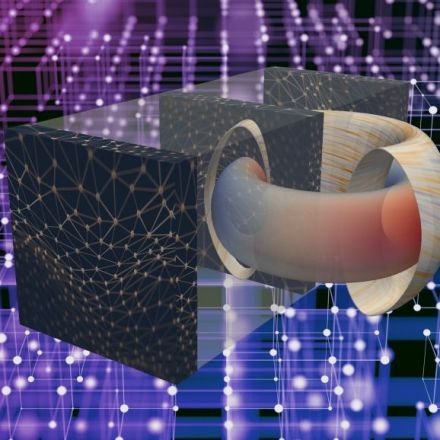Best Data Science Online Course with 100% Practical Experience
Interact with machine learning algorithms in data science course of OnlineITGuru. learn artificial Intelligence and get data science certification
Continue ReadingAdvanced Topics in Data Science
The Advanced Topics in Data Science Seminar Series will be held this spring at the e-Science Institute. The goal is to provide a closer look at useful techniques in data science in a long-form interactive setting. Over the quarter, we’ll hear from a variety of speakers discussing tools and techniques that go beyond the fundamentals presented in previous courses. The theme this quarter is Bayesian Data Analysis .
Teaching methodology The course will be delivered in a combination of regular lectures, presentations of research topics given by invited experts, and presentations by students (typically critically analyzing the ideas presented in a published manuscript). Assessment and Grading System Students will be asked to orally present 2 research papers of their choice (40% of the final mark) and to turn in a written report for a final project (60% of the final mark). This project will be decided by the students but should involve the application, critical assessment or extension of the research methods seen in class. The content can be theoretical, empirical, a practical application or a combination of the former.
** Introduction to Reinforcement Learning**
Aims: Reinforcement Learning (RL) is one of the main sub-fields of machine learning, alongside supervised and unsupervised learning, that focuses on decision making under implicit feedback. As such, it is heavily employed and developed in areas such as robotics and Al enginges in games like Go and Chess. This topic will introduce the field of RL and standard agent-environment framework, covering Bellman's equations, dynamic programming, Monte Carlo and Temporal-Difference learning.
Objectives: By the end of the topic students should be able to (1) explain key concepts in RL such as the exploration-expolitation trade-off, discounting, MDPs, Policy iteration, Bellman's equations, TD and Q-learning; (2) implement basic RL algorithms; (3) have an understanding of basic issues such as the curse of dimensionality and differences between on and off-policy control.
The content of the course will change from year to year and will reflect the current research interests of the EURECOM faculty. The course is organised partly in Seminars/Case Studies sessions supported by industrials and researchers working in the field and a Mini Scientific Conference where each student will research and present a topic from the wide range of advanced data science topics.
Teaching and Learning Methods : academic and industrial seminars, case studies in small group, written and oral presentation.
Course Policies : Attendance to all sessions is mandatory.
BIBLIOGRAPHY Giving a Talk: Guidelines for the Preparation and Presentation of Technical Seminars by Frank R. Kschischang, Department of Electrical and Computer Engineering University of Toronto, http://www.comm.toronto.edu/frank/guide/guide.pdf
REQUIREMENTS Basic knowledge in Data Science
DESCRIPTION The course is intended to expose students with recent developments in the field of Data Science. This is achieved through seminars and case studies organised in collaboration with companies and researchers working in the field. Whenever possible visits of local companies or research centers are organised. In addition to the seminars, students are involved in the organisation of a mini scientific conference. Typically students are asked to research, read and understand recent articles in the research literature and give presentations based on their finding on specific topics. This allows participants of the course to become aware and knowledgeable about the very wide range of critical Data Science Certification related themes at hand today.
Current topics include but are not limited to the following:
Large Scale Multimedia Databases
Machine and Deep learning Algorithms/Applications
Business Intelligence
Smart / Connected City
Big Data Analytics
Data Mining: From Text to Multimedia and Machine Data
Content Modeling and Personalization
Sentiment Analysis
Crowdsourcing and Social Media
Learning outcomes:
be able to understand the key actual problems data science is addressing both within industry and within academia
be able to prepare and give a presentation about work on a specific data science topic. visit - https://onlineitguru.com/data-science-course.html





























Join the Discussion